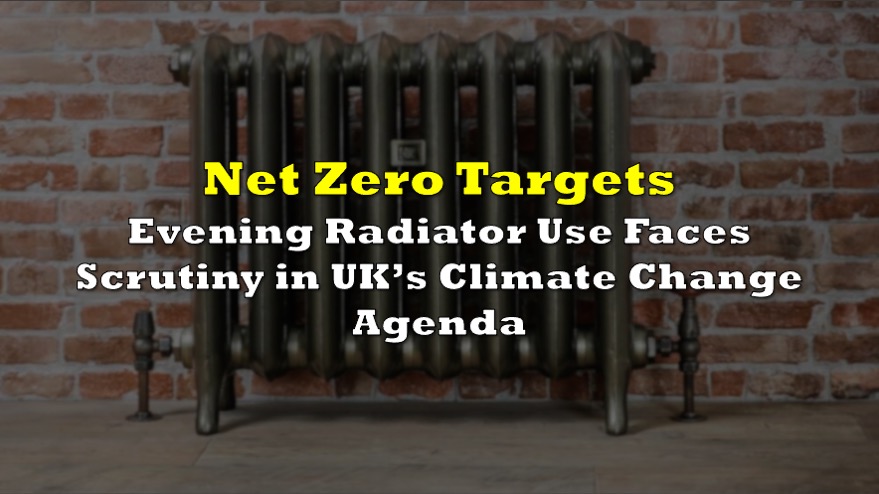The Climate Change Committee (CCC), an independent body established to guide the UK government on its climate goals, has advised millions of households to turn off their radiators during peak evening hours.
This proposal, part of a broader initiative to achieve emissions reduction, encourages residents to “pre-heat” their homes in the afternoon when electricity consumption is lower, because the CCC believes this would not only save families money but also reduce the demand on the power grid during peak times.
Found in the CCC’s sixth “carbon budget” paper which plots out the UK’s emissions reduction path from 2033-37, the advice particularly targets homes with electric heating systems, like heat pumps. The committee emphasizes that homes with good insulation can capitalize on cheaper tariffs during off-peak hours.
The CCC envisions that by 2033, all new homes and up to half of those built post-1952 should be primed for such pre-heating techniques. However, critics argue that such advice compromises the quality of life of residents just to meet government-set climate benchmarks.
Andrew Montford of Net Zero Watch commented on the shortcomings of the current grid, labeling renewables as a looming disaster. Likewise, Craig Mackinlay, leading the Net Zero Scrutiny group, criticized the CCC’s guidance, suggesting it portrays the illusion of abundant, low-cost renewable energy as deceptive.
Despite the criticisms, a CCC spokesperson defended the recommendation, saying it offers a financial benefit to homeowners. By optimizing electricity use during cheaper periods, homes could remain warm while decreasing their energy bills. This strategy, the spokesperson argued, would enhance grid efficiency and promote the adoption of affordable renewable energy.
In the meantime, though, there’s been significant debate about the proposed ban on new oil-powered boilers from 2026, pushing homes towards heat pumps. The government might reconsider this plan due to concerns about increased rural fuel poverty and added pressure on the already burdened electricity grid.
The CCC’s recent report criticized the government, especially Downing Street, for their sluggish climate action, pinpointing their support for oil, coal, and airport expansion as reasons the UK isn’t viewed as a leading eco-friendly nation. The concept of “carbon budgets,” which set legally binding emission reduction targets for the government, has become controversial among Tory MPs.
Interestingly, the CCC’s head, Chris Stark, acknowledged the challenges in the residential transition to greener solutions. While Stark expressed interest in adopting electric heating, he admitted to still using a gas boiler, emphasizing the high cost and installation difficulties of heat pumps in flats like his. Even his boiler engineer remains skeptical about the effectiveness of heat pumps as a practical alternative.
So much for reliance on renewable energy, hey?
Information for this briefing was found via The Telegraph and the sources mentioned within the article. The author has no securities or affiliations related to this organization. Not a recommendation to buy or sell. Always do additional research and consult a professional before purchasing a security. The author holds no licenses.








